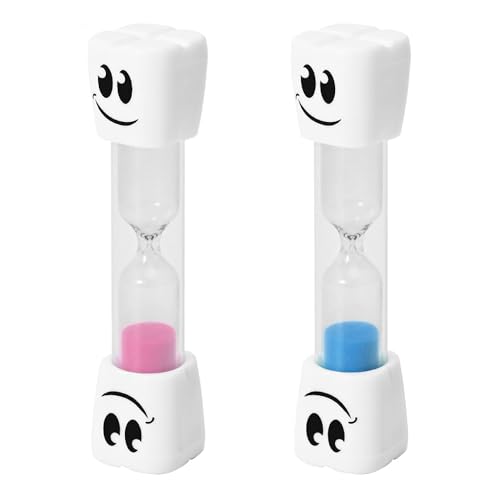Just as we prioritize our children’s physical health, their mental well-being deserves equal attention and care. In today’s fast-paced world, kids face a unique set of pressures, and equipping them with the tools to navigate their emotions and build resilience is more important than ever.
This post will explore practical tools, actionable tips, and valuable resources to support your child’s mental health journey, fostering a foundation of emotional strength and well-being.
Why is Children’s Mental Health So Important?
Healthy mental development allows children to:
- Learn and grow effectively: Emotional well-being supports focus, concentration, and a positive attitude towards learning.
- Build strong relationships: Understanding and managing emotions fosters empathy, communication, and healthy social connections.
- Cope with challenges: Resilience, a key aspect of mental health, helps children navigate stress, setbacks, and difficult experiences.
- Develop a strong sense of self: Positive mental health contributes to self-esteem, confidence, and a healthy identity.
- Lay the foundation for lifelong well-being: Early attention to mental health can prevent more significant issues from developing later in life.
Practical Tools and Tips to Support Your Child’s Mental Health
- Create a Safe and Supportive Environment:
- Open Communication: Foster an environment where your child feels comfortable talking about their feelings without judgment. Actively listen and validate their emotions, even if they seem small to you.
- Predictable Routines: Children thrive on structure and predictability. Consistent routines for sleep, meals, and activities can reduce anxiety and provide a sense of security.
- Quality Time: Dedicate regular, focused time to connect with your child through play, conversation, or shared activities. This strengthens your bond and provides opportunities to observe their emotional state.
- Teach Emotional Literacy:
- Label Feelings: Help your child identify and name their emotions. Use feeling charts, books, or simple conversations to build their emotional vocabulary.
- Model Healthy Expression: Show your child how you manage your own emotions in a healthy way. Talk about your feelings and how you cope with them.
- Empathy Building: Encourage your child to consider how others might be feeling. Discuss characters in books or real-life situations to foster empathy and understanding.
- Promote Healthy Coping Skills:
- Mindfulness and Breathing Exercises: Introduce simple mindfulness activities and breathing techniques that your child can use when feeling overwhelmed. Apps designed for kids can make this engaging.
- Creative Expression: Encourage outlets like drawing, painting, writing, or playing music as healthy ways to express emotions.
- Physical Activity: Regular exercise is a powerful mood booster and stress reliever for children.
- Problem-Solving Skills: Help your child develop strategies for dealing with challenges. Guide them through the steps of identifying the problem, brainstorming solutions, and choosing a course of action.
- Utilize Calming Tools and Techniques:
- Calm-Down Corner: Create a designated space where your child can go when feeling overwhelmed. Equip it with comforting items like soft blankets, sensory toys, and books.
- Sensory Tools: Fidget toys, stress balls, weighted blankets, and sensory bottles can provide calming sensory input.
- Visual Timers: Help children understand and manage transitions or time limits, reducing potential anxiety.
Valuable Resources for Children’s Mental Health
For Parents and Caregivers:
- Websites:
- Kids Helpline (Australia): Offers phone and online support for young people up to 25. Parents can also find resources. (https://kidshelpline.com.au/)
- Beyond Blue (Australia): Provides information and support for anxiety, depression, and suicide prevention. Has resources for parents and young people. (https://www.beyondblue.org.au/)
- Headspace (Australia): Offers mental health and wellbeing support, including resources for young people and families. (https://headspace.org.au/)
- Raising Children Network (Australia): A comprehensive website with evidence-based information on all aspects of raising children, including mental health. (https://raisingchildren.net.au/)
- The Child Mind Institute (USA): A non-profit organization dedicated to transforming the lives of children struggling with mental health and learning disorders.1 Offers valuable articles, videos, and resources. (https://childmind.org/)
- Books for Parents:
- “The Whole-Brain Child: 12 Revolutionary Strategies to Nurture Your Child’s Developing Mind” by Daniel J. Siegel and Tina Payne Bryson: Provides insights into brain development and2 practical strategies for fostering emotional regulation.
- “Permission to Feel: Unlocking the Power of Emotions to Help Our Kids, Ourselves, and Our Society Thrive” by Marc Brackett: Explores the importance3 of emotional literacy and offers practical tools.
- “What Happened to You? Conversations on Trauma, Resilience, and Healing” by Bruce D. Perry and Oprah Winfrey: While focused on trauma, offers valuable insights into understanding the impact of experiences on a child’s development and mental health.
For Children:
- Books:
- “The Color Monster: A Story About Emotions” by Anna Llenas: Helps young children identify different emotions.
- “My Many Colored Days” by Dr. Seuss: Uses colors to depict a range of feelings.
- “Listening to My Body: A Guide to Helping Young Children Understand the Amazing Signals Their Bodies Send Them” by Gabi Garcia and Yaroslav Pavlov: Connects physical sensations with emotions.
- “Hey Warrior” and “Hey Awesome” by Karen Young: Empowering books that help children understand and manage anxiety.
- Apps (with parental guidance):
- Smiling Mind: Offers guided meditations and mindfulness activities designed for children of different ages.
- Calm: Provides a range of calming exercises and stories, some specifically for kids.
- Headspace for Kids: Offers kid-friendly mindfulness and meditation sessions.
Remember: You are not alone in supporting your child’s mental health. If you have concerns about your child’s emotional well-being, don’t hesitate to reach out to professionals such as:
- Your child’s doctor or pediatrician
- School counselors or psychologists
- Child psychologists or therapists
- Mental health helplines and organizations listed above
Nurturing our children’s mental health is an ongoing journey that requires patience, understanding, and a willingness to learn. By implementing these tools, tips, and utilizing available resources, we can empower our little ones to build emotional resilience and thrive.
















